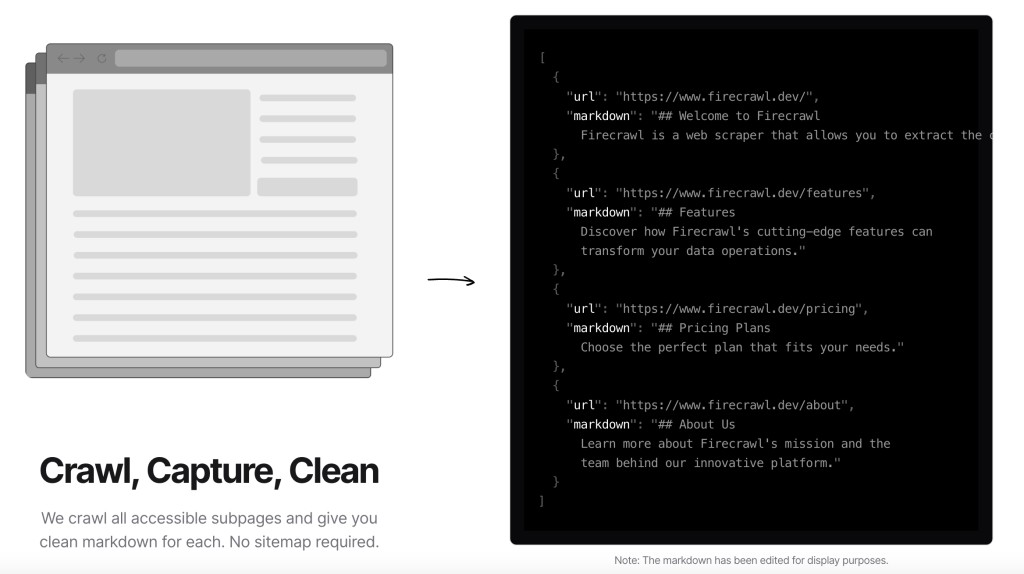In the rapidly advancing field of Artificial Intelligence (AI), effective use of web data can lead to unique applications and insights. A recent tweet has brought attention to Firecrawl, a potent tool in this field created by the Mendable AI team. Firecrawl is a state-of-the-art web scraping program made to tackle the complex problems involved in getting data off the internet. Web scraping is useful, but it frequently requires overcoming various challenges like proxies, caching, rate limitations, and material generated with JavaScript. Firecrawl is a vital tool for data scientists because it addresses these issues head-on.
Even without a sitemap, Firecrawl explores every page on a website that is accessible. This guarantees a complete data extraction procedure by ensuring that no important data is lost. Traditional scraping techniques encounter difficulties when dealing with the dynamic rendering of material on numerous modern websites that rely on JavaScript. But Firecrawl efficiently collects data from these kinds of websites, guaranteeing that users can access the entire range of information accessible.Â
Firecrawl extracts data and returns it in a clean, well-formatted Markdown. This format is especially useful for Large Language Model (LLM) applications because it makes integrating and using the scraped data easy. Web scraping relies heavily on time, which Firecrawl solves by coordinating concurrent crawling, which dramatically accelerates the data extraction process. With this orchestration, users are guaranteed to receive the data they require promptly and effectively.Â
Firecrawl uses a caching mechanism to optimize efficiency further. Content that has been scraped is cached, so unless fresh content is found, there is no need to perform full scrapes again. This feature lessens the load on target websites and saves time. Firecrawl provides clean data in a format that is ready for use right away, catering to the unique requirements of AI applications.
The tweet has highlighted the use of generative feedback loops for data chunk cleansing as one new aspect. In order to make sure the scraped data is valid and valuable, this procedure includes reviewing and refining it using generative models. Here, generative models offer comments on the data pieces, pointing out errors and making recommendations for enhancements.Â
The data is improved through this iterative process, increasing its dependability for further analysis and application. The quality of datasets created can be greatly improved by introducing generative feedback loops. By using this approach, the data is both contextually correct and clean, which is important when it comes to making wise decisions and developing AI models.
To begin using Firecrawl, users must register on the website in order to receive an API key. With various SDKs for Python, Node, Langchain, and Llama Index integrations, the service provides an intuitive API. For a self-hosted solution, user can run Firecrawl locally. Users who submit a crawl job receive a job ID that allows them to monitor the crawl’s progress, making the process simple and effective.
In conclusion, with its great capabilities and smooth integration, Firecrawl is a major development in web scraping and data storage. It offers a complete solution for users wishing to access the abundance of online data resources when combined with the creative method of cleaning data via generative feedback loops.
Check out the GitHub Repo. All credit for this research goes to the researchers of this project. Also, don’t forget to follow us on Twitter.Â
Join our Telegram Channel and LinkedIn Group.
If you like our work, you will love our newsletter..
Don’t Forget to join our 45k+ ML SubReddit
The post Firecrawl: A Powerful Web Scraping Tool for Turning Websites into Large Language Model (LLM) Ready Markdown or Structured Data appeared first on MarkTechPost.
Source: Read MoreÂ


